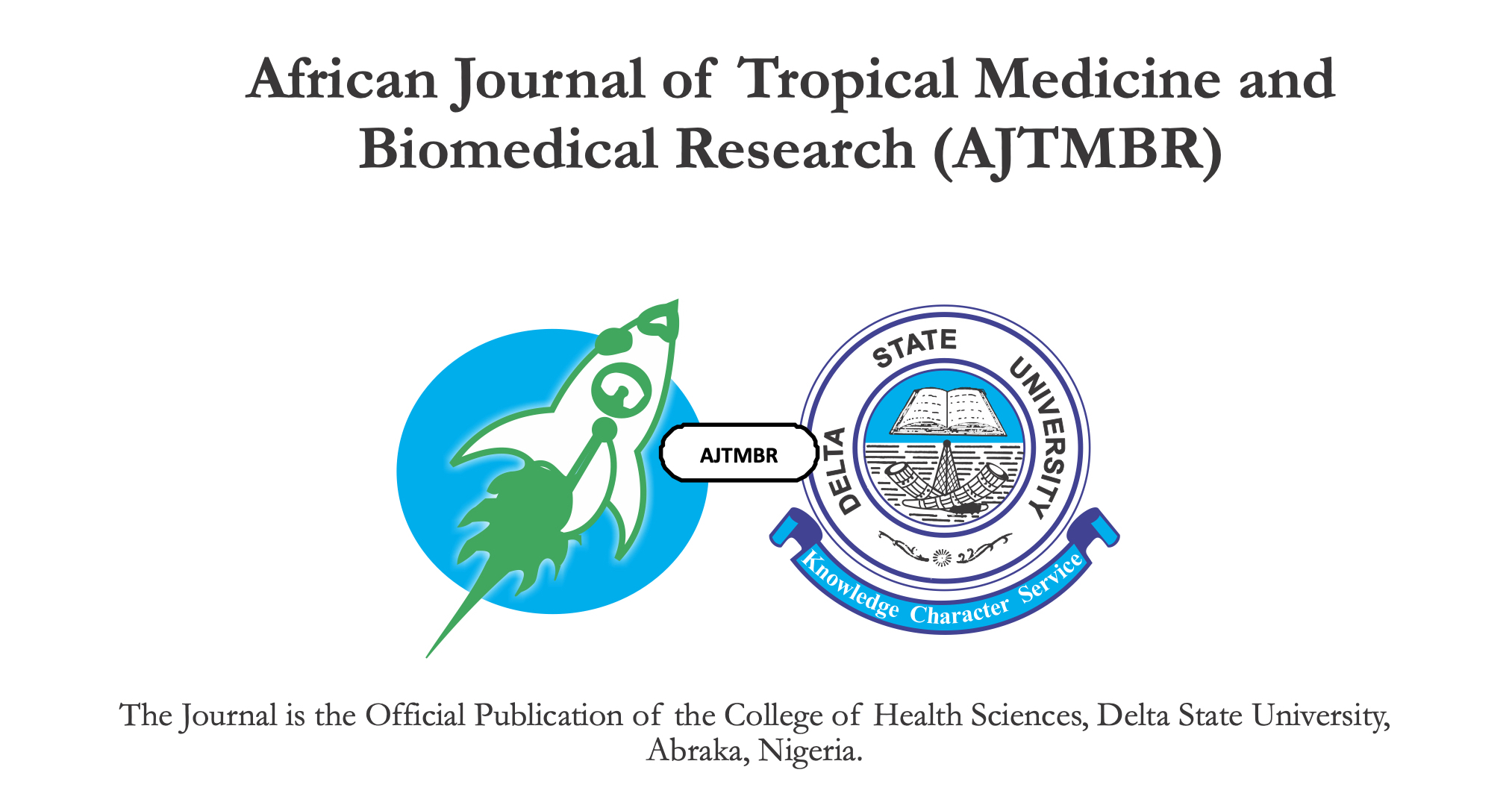Assessment of Health Workers' Knowledge, Perception and Compliance Following a World Health Organisation Multimodal Hand Hygiene Intervention Campaign an a Nigerian Teaching Hospital
Keywords:
hand hygiene, health workersAbstract
Background: The transmission of health care-associated infections (HCAI) in hospital environment constitutes a significant major public health problem worldwide and health-care workers are potential source of these infections. This study assessed the knowledge and perception of health workers in a Nigeria Teaching Hospital following the implementation of the World Health Organization (WHO) hand hygiene intervention strategy.
Methods: The study participants were physicians, nurses and other health workers involved in direct patient care. The intervention included training/education; use of reminders in the workplace; and introduction of 70% isopropyl alcohol hand rub in strategic 'points of care' places. The WHO hand hygiene evaluation and feedback tool was used for the assessment of the health workers perception.
Results: A total of 71 (65.7 %) out of 110 respondents participated in the hand hygiene training conducted during the period of the study; however only 58 of the respondents (53.7 %) routinely use alcohol-based hand rub. In the assessment of the knowledge of the main route of cross contamination and the most frequent source of germs responsible for HCAI, 45.9% and 43.9 % of the respondents respectively answered correctly. The follow-up perception survey conducted among the participants indicates that 63.2% of them admitted that the training/educational activities they participated in were very important to improve their hand hygiene practices.
Conclusion: Hand hygiene campaigns using the WHO tools and methodology can improve hand hygiene knowledge, perception and compliance of the health workers.

Downloads
Published
Issue
Section
License

This work is licensed under a Creative Commons Attribution-NoDerivatives 4.0 International License.
Key Terms:
- Attribution: You must give appropriate credit to the original creator.
- NonCommercial: You may not use the material for commercial purposes.
- No Derivatives: You may not remix, transform, or build upon the material.
- Sharing: You may distribute the original work, but only for non-commercial purposes and without modifications.
For full details, please review the Complete License Terms.



